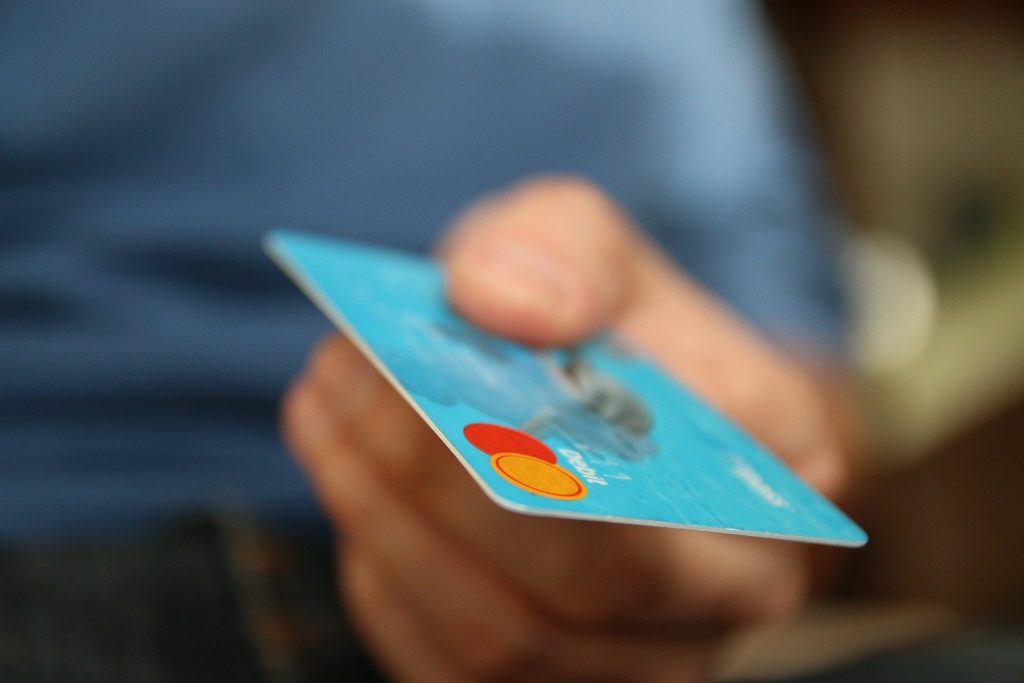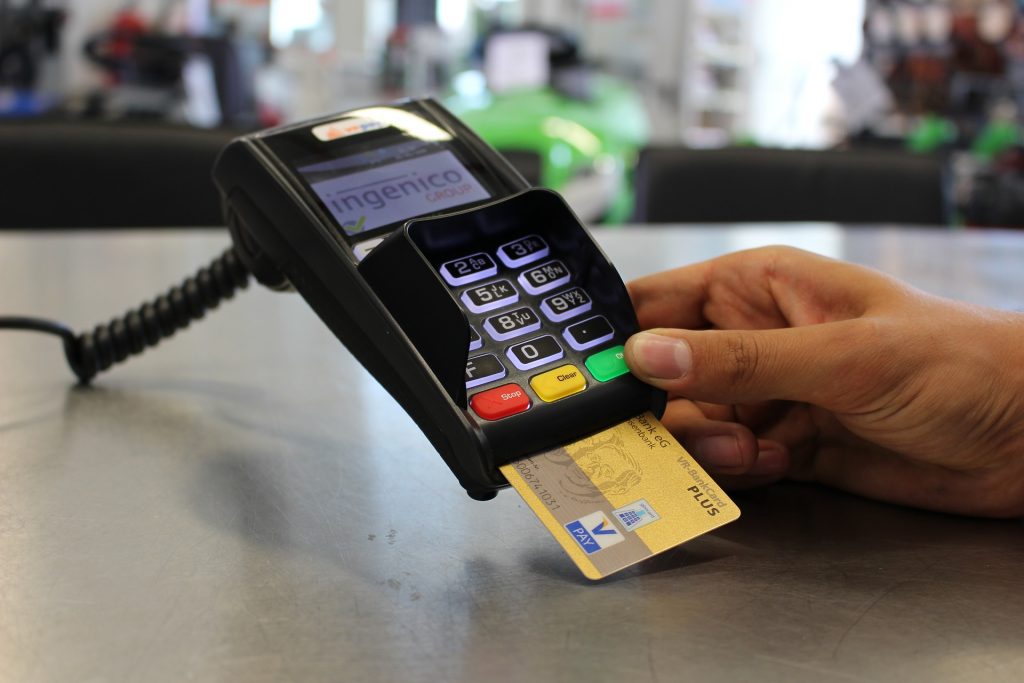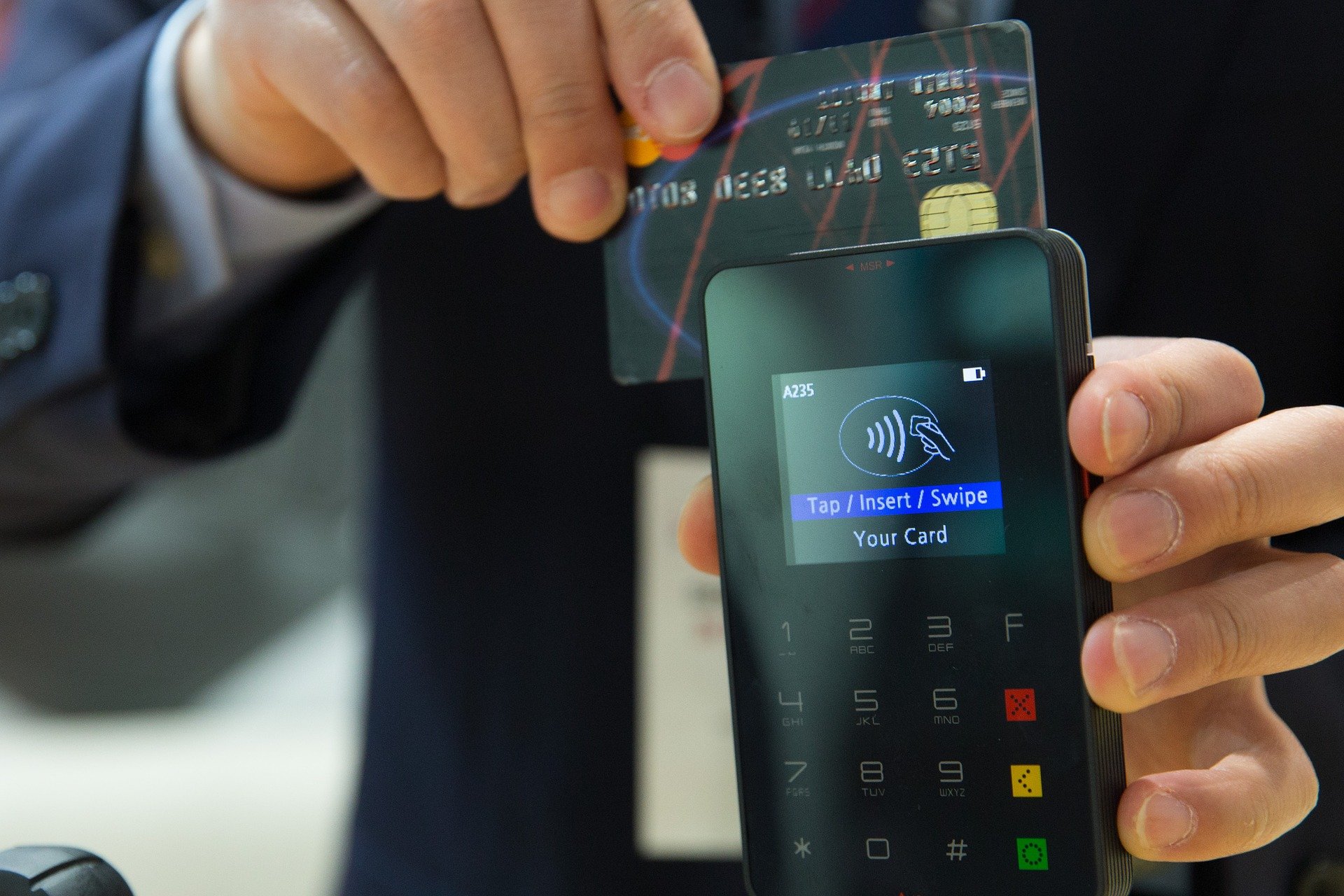The idea of putting your next vehicle purchase on plastic seems tempting in light of all the points you’d get. But can you buy a car with a credit card? Just as importantly, should you? Keep reading for some very detailed answers to these questions.
Note: Buying a car is among the largest single transactions you’ll ever make. Speak with an advisor one-on-one before making a decision.
Can you buy a car with a credit card?

Most car dealerships won’t let you place the entire purchase price of your vehicle on a credit card. Rather, they’ll impose a limit of around $3,000 to $5,000 – enough for a typical down payment. If the car costs more than that, you’ll need to pay the excess via a check or financing.
There are a few very good reasons for this. Let’s take a look.
Processing fees
Most credit card companies charge vendors (including car dealerships) transaction processing fees between 1.3% and 3.4%, according to The Motley Fool.
This means that if you put the entire average U.S. vehicle purchase price of $36,718 on plastic, the dealer would pay between $477 and $1,248 in transaction fees.
That’s a non-starter since many dealers don’t even make that much profit on a new vehicle’s sale price, to begin with. In fact, they typically lose around $200 per new vehicle when all’s said and done.
They fare a little better with used vehicles, netting an average of $65 per sale, according to the previously-linked source. That’s still less than what they’d lose to processing fees if they let customers pay in full with credit, though.
Lost opportunities in the financing office
Given that profits on vehicle sales are so abysmal, you might be wondering how dealers manage to stay afloat. Well, according to Edmunds, the magic happens in the financing office.
When a dealership helps you secure a car loan, they often add a couple of percentage points to the interest rate provided by their lender. This can generate thousands of dollars in profit for them over the life of your loan.
When you show up with your own financing, you’re essentially a cash buyer and so they lose this opportunity.
Of course, dealerships still accept cash all the time. They won’t accept credit, though, because they’d end up losing the opportunity to sell you financing plus that 1.3% to 3.4% processing fee I mentioned earlier.
Greater risk
Credit card payments also expose dealerships to a higher level of risk.
For example, a customer could file a chargeback claiming the dealer misrepresented their vehicle in some way.
While they’d probably be denied if the facts weren’t overwhelmingly on their side, the dealership would still have to waste resources communicating with the credit card company.
Additionally, those disputed funds would be placed on hold until a resolution was reached.
Benefits of using a credit card at the dealership

Next, let’s take a look at the benefits of using a credit card to cover amounts up to the dealership’s limit.
You’ll get points
When I bought my Toyota Corolla, I paid the dealership $4,000 with my credit card, which netted me 2,000 points. That’s not bad considering the alternative was writing a check and getting no points whatsoever.
My credit card isn’t particularly special from the perspective of incentives, either. If you have something better, you may end up receiving hundreds of dollars in financial perks.
It’s convenient
If you’re like me, going through life without a checkbook, making your down payment with a credit card is super convenient. Otherwise, you’d need to get a cashier’s check, which typically comes with a fee and is just another step in an already-arduous process.
Added security
The ability to file a chargeback is a huge benefit in scenarios where the dealer behaves maliciously and you’d like to back out of the deal.
One phone call to your card issuer is all it takes to file a dispute on the charge. Because chargebacks can impact a dealership’s ability to process payments in the future, they may back down right there. If you pay by check, on the other hand, you have substantially less recourse.
Disadvantages of using a credit card at the dealership

There are also some potential downsides to be aware of when using your credit card at a car dealership. I’ll skip the one we’ve discussed already, which is that you’re typically bound by a limit of around $3,000 to $5,000.
If you don’t repay quickly, it’ll cost you
If you don’t repay your credit card promptly, you’ll end up owing interest, which can quickly wipe out any financial benefit you receive from points or other incentives.
After all, credit cards come with an average 17.98% annual interest rate (14.58% for new cards), according to WalletHub. That’s quite high and can amount to hundreds of dollars owed in interest if it takes you even just a few months to repay a debt of several thousand dollars.
Carrying such a high balance can also impact your credit score. If it places your credit utilization ratio above 30% (which is the maximum typically recommended by experts), you may see a particularly drastic drop. This can make it harder to get loans at favorable rates.
There are cheaper options
If you actually need to borrow money for a car purchase (as opposed to doing so simply for the points and then repaying the balance immediately), there are cheaper ways to go about it than using a credit card.
A traditional car loan is one such method. Unless you have an abysmal credit score, you’ll typically receive a single-digit interest rate. I was able to get 1.09% through Toyota when I bought my Corolla.
You’d never get a long-term (five years in my case) loan that cheap through your credit card or even a personal line of credit, no matter how good your score is.
Now, the obvious caveat here is that you shouldn’t need to borrow your new vehicle’s entire cost.
Experts typically recommend putting between 10% and 20% down. Anything less would mean you’ll likely end up owing more than the car is worth as soon as you drive off the lot.
As far as financing the rest of your vehicle purchase, though, the money you’ll save with a traditional car loan will likely outweigh any benefit you’d derive from using a credit card.
When using a credit card at the dealership generally makes sense
Next, let’s contextualize the information we’ve covered so far and discuss when it typically makes sense to use a credit card to pay up to the dealer limit. Keep in mind that this is not financial advice; speak with an advisor before making a decision.
Personally, I’d only use a credit card at the dealership if all of these statements were true.
You have the cash to pay it off immediately
If you have enough cash in your account to pay off your entire credit card balance after making the purchase, you basically have nothing to lose. Your credit report may not even register a change in your utilization ratio if you pay the card off on the same day.
Your card offers rewards
Credit card rewards can essentially amount to an additional cash discount on your vehicle purchase. Even just $100 or so in rewards may alleviate any inhibitions you otherwise have about whipping out the plastic.
Your credit utilization ratio will remain below 30%
You’re also in a good spot if the amount you’re putting on credit at the dealership is not enough to bump your credit utilization ratio above 30%. While you shouldn’t be carrying the balance anyway (see point number one), it’s good to get in the habit of avoiding that 30% high water mark.
When to avoid using a credit card at the dealership
Conversely, there are also some good reasons to avoid using credit at a car dealership. If any of these statements apply to you but you still need a car now, consider the tips I covered in this article about earning money quickly.
You plan on taking a while to repay the debt
The interest you’ll pay on a long-held balance of several thousand dollars will easily negate any financial benefit you receive via incentives.
Additionally, the balance’s impact on your credit score could damage your finances in a number of ways, including by making it difficult to get subsequent loans without paying exorbitant interest rates.
The bottom line is that if you can’t pay off your credit card balance immediately, strongly consider not using plastic at the dealership.
Your credit is already terrible
If your credit is already abysmal, racking up debt likely isn’t going to help. This is especially true if you eventually have difficulty making payments, which is probably at least somewhat of a possibility if you have terrible credit.
You already have significant debt
If you already have a substantial amount of debt, adding to it will only give you a harder time getting back on track. You may even find yourself demoralized by the setback, which isn’t good for your mental health or your finances.
Can you buy a car with a credit card? The bottom line
So, can you buy a car with a credit card? Generally speaking, no – unless the car’s price falls under the $3,000 to $5,000 limit typically imposed by dealerships for credit card transactions.
This is the case for several reasons. For one, credit card transactions are subject to processing fees ranging from 1.3% to 3.4%, which eats into the dealership’s already razor-thin margins. Credit cards also expose the dealership to greater financial risk and eliminate their opportunity to sell you financing.
Still, putting $3,000 to $5,000 of your down payment on plastic can earn you a decent amount of rewards points, in addition to being convenient. If your personal finances are healthy (which means you have the cash to pay off your credit card promptly), it’s worth considering.
Don’t forget to speak with an advisor
While buying a car might seem like a pretty straightforward process, don’t discount the value of speaking to a financial advisor beforehand. They’ll help you determine exactly how much car you can afford, what down payment is appropriate, and how aggressively you should make payments depending on the interest rate.
I spoke to an advisor before buying my car – and I highly recommend you do the same.

